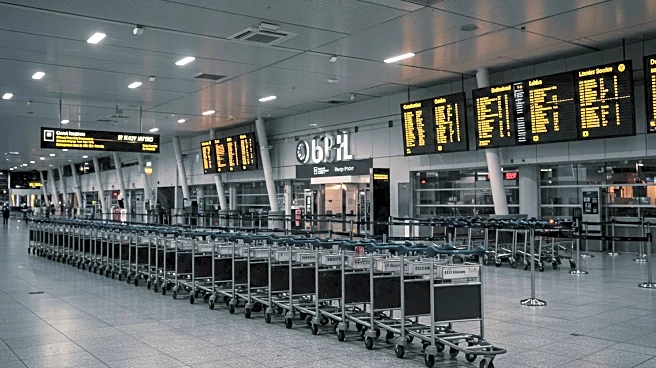What's Happening?
Air Canada has faced significant operational disruptions due to a strike by its flight attendants, leading to the cancellation of hundreds of flights. The strike, which involved about 10,000 cabin crew members, has affected over 500,000 passengers and resulted in more than 2,000 flight cancellations. The dispute centers around ground pay and inflation adjustments, with flight attendants defying government orders to return to work. The strike has severely impacted Air Canada's financial performance, with an estimated loss of 75 million Canadian dollars per day in EBITDA.
Why It's Important?
The strike highlights ongoing labor tensions within the airline industry, particularly concerning pay and working conditions. It underscores the vulnerability of airlines to labor disputes, which can lead to significant financial losses and damage to customer trust. The disruption comes at a critical time during the summer travel season, affecting Air Canada's ability to recover from a drop in transborder traffic. The situation may set a precedent for future labor negotiations in Canada, potentially influencing other airlines like WestJet.
What's Next?
Air Canada is working to restore normal operations, which may take up to 10 days. The strike's resolution could influence upcoming labor negotiations, particularly for WestJet, whose collective bargaining agreement expires in December. The government may need to reconsider its approach to labor disputes to prevent similar disruptions in the future.
Beyond the Headlines
The strike raises questions about the role of government intervention in labor disputes and the balance between protecting workers' rights and ensuring operational stability. It also highlights the broader issue of staffing shortages and cost pressures in the airline industry, which may lead to more frequent labor disputes.









